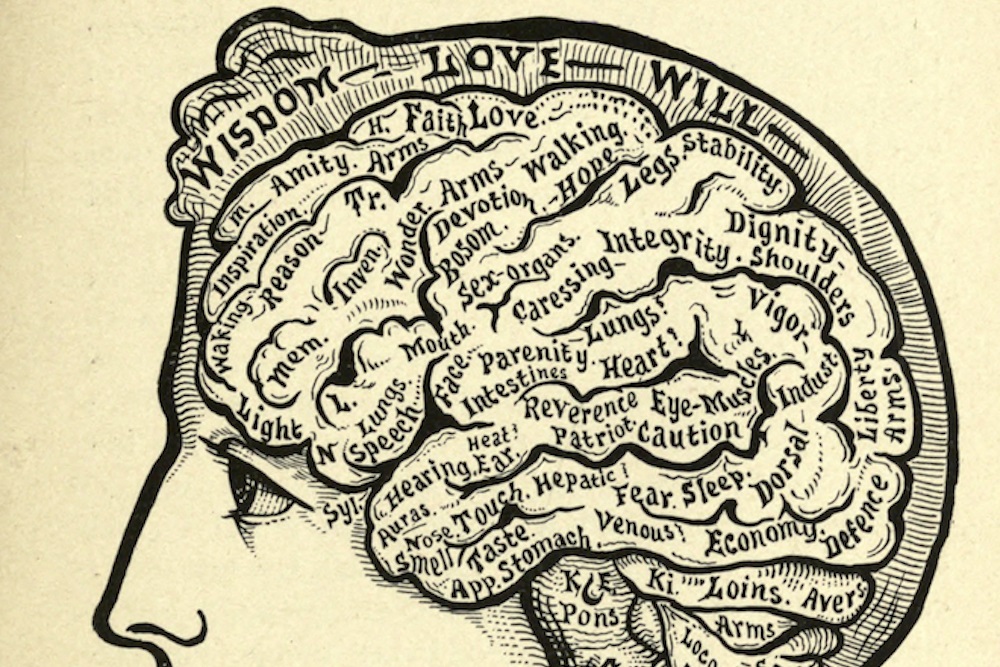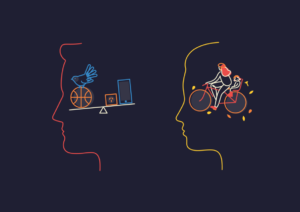Have you ever faced a really difficult situation? Sometimes we know that even though we want to give up over and over again, we have to move on. This is where our emotional resilience comes into play.
How come some people keep moving forward even under the toughest conditions? Steven Southwick and Dennis Charney searched for the answer to this question for 20 years. He spoke with Vietnam POWs, Special Forces instructors, those with medical problems, and civilians who have suffered horrific experiences of abuse and trauma.
Resilience: The Science of Mastering Life’s Greatest Challenges , shared the common characteristics of people who do not lose their power as the conditions get difficult.
So what can we learn from them to increase our emotional resilience?
1) Be realistically optimistic.
Yes, no matter how dark it is, trying to look in the direction of the light allows you to continue with your life. However, it is not about seeing life as rosy as Polyanna.
People who can survive even the most challenging situations, such as Special Forces, are people who have found their balance of looking at life in a way that does not compromise reality.
The book summarizes this issue as follows:
“Realistically optimistic people, like pessimists, pay attention to the negative things they encounter. However, they do not get hung up on negative things like pessimistic people. They try to solve problems that seem unsolvable by dividing them. In other words, they understand what problem they are facing with their awareness and then know how to reach a solution. “
Laurence Gonzales found the same thing when he studied survivors of life-threatening scenarios: These people balance positivity with realism.
2) Face your fears.
Neuroscience says the most productive way to deal with fear is to confront it.
The more we run away from the things we fear, the more we begin to fear. Fears become less frightening the more they are faced.
“To extinguish the fire of a dominant fear, the person must be exposed to the fear-inducing stimuli in a safe environment long enough for the brain to form a new attitude. Neuroimaging systems show that the capacity of the PFC (Prefrontal cortex) needs to be strengthened to inhibit amygdala -based fear responses. Various confrontational approaches in the treatment of Post Traumatic Stress Disorder, phobias, and anxiety disorders have proven to significantly reduce these fears.”
Special Forces’ perspectives when faced with the most frightening situations are often shared: “I’m scared, but I can learn something from this” or “This is a test that will make me stronger.”
Thinking positively and facing our fears. Good advice, but what are the things that deepen us against life’s challenges?
3) Always have a moral compass.
As a result of their research, Southwick and Charney realized that people with high emotional resilience have a high right/false distinction. Although these people were in situations that could threaten their lives in difficult moments, they thought not only of themselves but also of others.
“In our interviews, we have seen that individuals with high emotional resilience hold on to life thanks to the sharp right/wrong distinctions that make them stronger during periods of stress and after trauma.”
Researchers summarize the essence of a program called “The Giraffe Project” that helps children develop good values:
“Keep your head up and always do the right thing.”
4) Feel yourself as part of a whole.
This is the most important element researchers have found to overcome any tragedy.
“Dr. Amad found that people with high spirituality and religious faith were more successful in surviving.”
What if you’re not very religious?
Much of the power that comes from religious activities comes from being part of a community. So you don’t have to do something you don’t believe in; however, it will be beneficial to be part of a group that strengthens your determination.
“For example, the relationship between resilience and faith can be explained by the social quality of religious activities. The word ‘Religion’ means ‘religare’ in Latin, ‘to bind’. Etymologically it comes from the symbol of connecting people.”
So it is important to be part of a group that has beliefs, even if they are not religious. What if you are not part of any group?
5) Don’t be afraid to get social support.
Even if you’re not part of a religion or community, friends and loved ones are key when life gets tough.
When Admiral Robert Shumaker was captured in Vietnam, he was isolated from other prisoners and subjected to many tortures. How did he maintain his resolve?
By clicking on the wall of his cell. So the other prisoners heard and responded. It’s ridiculously simple, but “tapping the wall” lets them know they’re not alone in their pain. This has gone down in history as the “tap code”.
Our brains need social support to function at their best. Connecting with other people calms your mind, reduces stress, and increases oxytocin.
“The actions of oxytocin in reducing amygdala activation and arousal, positive support of others help in reducing stress.” —Heinrichs, 2009
6) Find your role models.
What do you find when you examine children who grew up in poor conditions but continue to live productive and healthy lives?
They have role models that are positive examples and supportive.
“Psychologist Emmy Werner has studied the lives of children raised by alcoholic, abusive, and mentally ill parents, and she has observed that children with high emotional resilience are much more productive and healthy because they have a role model of their own that they admire.” (Werner, 1993; Werner & Smith, 1992)
There are not always people around us that we can take as role models. Southwick and Charney found that having bad role models is also often sufficient. Even if you don’t know who you will be, it’s also important to know who you won’t be.
7) Maintain your physical fitness.
Researchers found that emotional resilience is directly related to physical fitness.
“Many of the resilient individuals we interviewed have a regular exercise habit, which has been a great help in their recovery during their traumatic problems. Some say that’s how they hold on to life.”
If you are an emotionally fragile person, physical fitness is much more important to you:
“The stress of exercise helps us adapt to the stress we feel when life challenges us.”
8) Keep your brain strong.
Emotionally resilient people are often lifelong learners. They continue to grow their minds, learn and adapt to new information about the world.
“Research by Cathie Hammond in 2004 found that lifelong learning can help improve many aspects of life-long learning (to achieve well-being from mental health challenges, to protect and recover from mental health, capacity to cope with potentially stressful conditions, self-esteem, self-efficacy, sense of purpose and hope, competences). and social integration) proved beneficial.”
9) Try to gain cognitive flexibility.
We all usually have a way of coping with difficulty, what sets resilient people apart is being able to use a range of ways to deal with stressful situations.
“Resilient people tend to be cognitively flexible. They don’t have a specific way of coping with stress and difficulties. Their thinking is flexible and they use the best of the situation.”
In many war movies, we can see soldiers joking with each other even in difficult situations. Have you wondered why?
“Humor has been proven to be effective as a coping mechanism. When humor is used to reduce the threatening nature of stressful situations, it increases resilience and the capacity to tolerate stress. (Martin, 2003)”
10) Find meaning in what you do.
Resilient people don’t just look at their job as a job. They fill their work with meaning and set a purpose. This keeps them going no matter how bored or fed up they are.
“When we look at Frankl’s concept of service, the ability to give meaning to a job increases resilience. This is true even for people who do what is called ‘dirty/hard work’ by society (for example, hospital cleaners) and people who find it difficult to pursue their chosen career.”
Editor’s Note and Final Thoughts:
Let’s have a short summary:
1) Realistic optimism: See the world clearly but believe in your abilities and yourself.
2) Face your fears: Hiding from fear makes it worse. Face it and overcome it.
3) Have a moral compass: A strong sense of right and wrong tells us we should do it when we feel we can’t.
4) Feel yourself as part of a whole : Be part of a group that believes in each other and has a sense of purpose.
5) Don’t be afraid to get social support: Sometimes click the wall of your cell, even the slightest interaction will help you back.
6) Imitate role models: Have people you know you don’t want to be, or adapt the behavior of your role model you admire.
7) Physical fitness: Exercise strengthens your body against stress.
8) Become a lifelong learner: Keeping your brain sharp will give you solutions when you need them most.
9) Remember that there are many ways to cope: Sometimes with humor, sometimes with reflection, you can get through difficult times.
10) Remember the meaning: Don’t just do a job. Give it meaning and act with a sense of purpose.
























